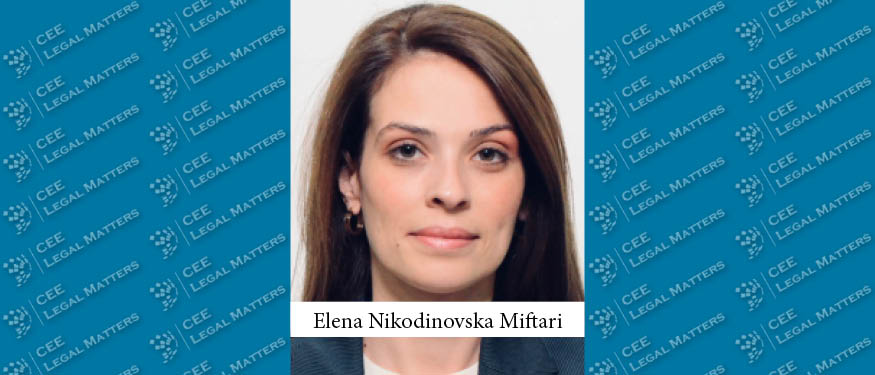In recent months, North Macedonia has introduced key legislative reforms in digital transformation, construction, energy, and the judiciary to support its economic and institutional development, according to Law Office Emil Miftari Attorney at Law Elena Nikodinovska Miftari.
“Over the past few months, North Macedonia has seen a wave of legislative reforms aimed at aligning the country with EU standards and improving the overall business environment,” Nikodinovska Miftari points out. “The most significant changes have taken place in digital transformation, innovation, media regulation, construction and urbanism, energy, and the judiciary.”
Perhaps the most notable developments are in the digital space, Nikodinovska Miftari continues. “Two new laws and one major amendment were published in early July in the Official Gazette. These changes were introduced primarily as part of the EU’s Digital Agenda for the Western Balkans initiative, launched in 2018 to help integrate the six Balkan countries into the broader digital economy. For North Macedonia, this is a crucial step toward the development of a modern information society.”
“One of the key updates is the new Law on Electronic Communications, which aims to bring the legal framework in line with EU directives,” Nikodinovska Miftari notes. “It introduces measures to improve service quality, expand high-speed internet access, including 5G and optical fiber, and streamline the development of digital infrastructure. Also, the new Law on Security of Network and Information Systems creates, for the first time, a comprehensive framework for cybersecurity, including crisis management.” Alongside this, “an amendment to the Law on Electronic Documents, Electronic Identification and Trust Services introduces the concept of a digital identity wallet, electronic attestation of attributes, and remote management of electronic signatures – tools intended to accelerate digital transformation,” Nikodinovska Miftari adds. “It also includes provisions to improve accessibility for persons with disabilities, in line with the UN Convention on the Rights of Persons with Disabilities.”
In construction and urbanism, “a recent amendment – currently under public scrutiny – aims to simplify the process of obtaining construction permits,” Nikodinovska Miftari emphasizes. “While proponents argue this will reduce delays caused by misuse of legal procedures by neighbors, critics warn it may weaken the rights of property owners to appeal and protect their interests. Nonetheless, other legal remedies remain available, such as participation in public surveys and the right to object to detailed urban plans.”
“In the energy sector, North Macedonia is committing to increased use of renewable sources,” she adds. “The updated rules aim to attract investment and ensure a stable energy supply, with citizens taking a more active role in energy production and sustainability.”
Nikodinovska Miftari adds that judicial reforms are also ongoing, with proposed changes to the Law on the Judicial Council. “Initially, there was discussion about dissolving the council, but the current approach is focused on reforming it to strengthen its independence and clarify rules around the selection and dismissal of members,” she highlights.
Other noteworthy updates, according to Nikodinovska Miftari, “include changes in health insurance, allowing foreign residents to be included in the mandatory system, and an expansion of IVF treatments covered by the state, from three to six attempts, in an effort to address declining birth rates.”
Lastly, Nikodinovska Miftari stresses that the foreign investment landscape is evolving. “While previously focused on labor-intensive sectors, the shift is now toward automation and tech-driven industries,” she points out. “This trend is mirrored in the legal profession, where practitioners are increasingly collaborating with finance and tech experts to meet the growing demand for interdisciplinary and digitally enabled client services.”















